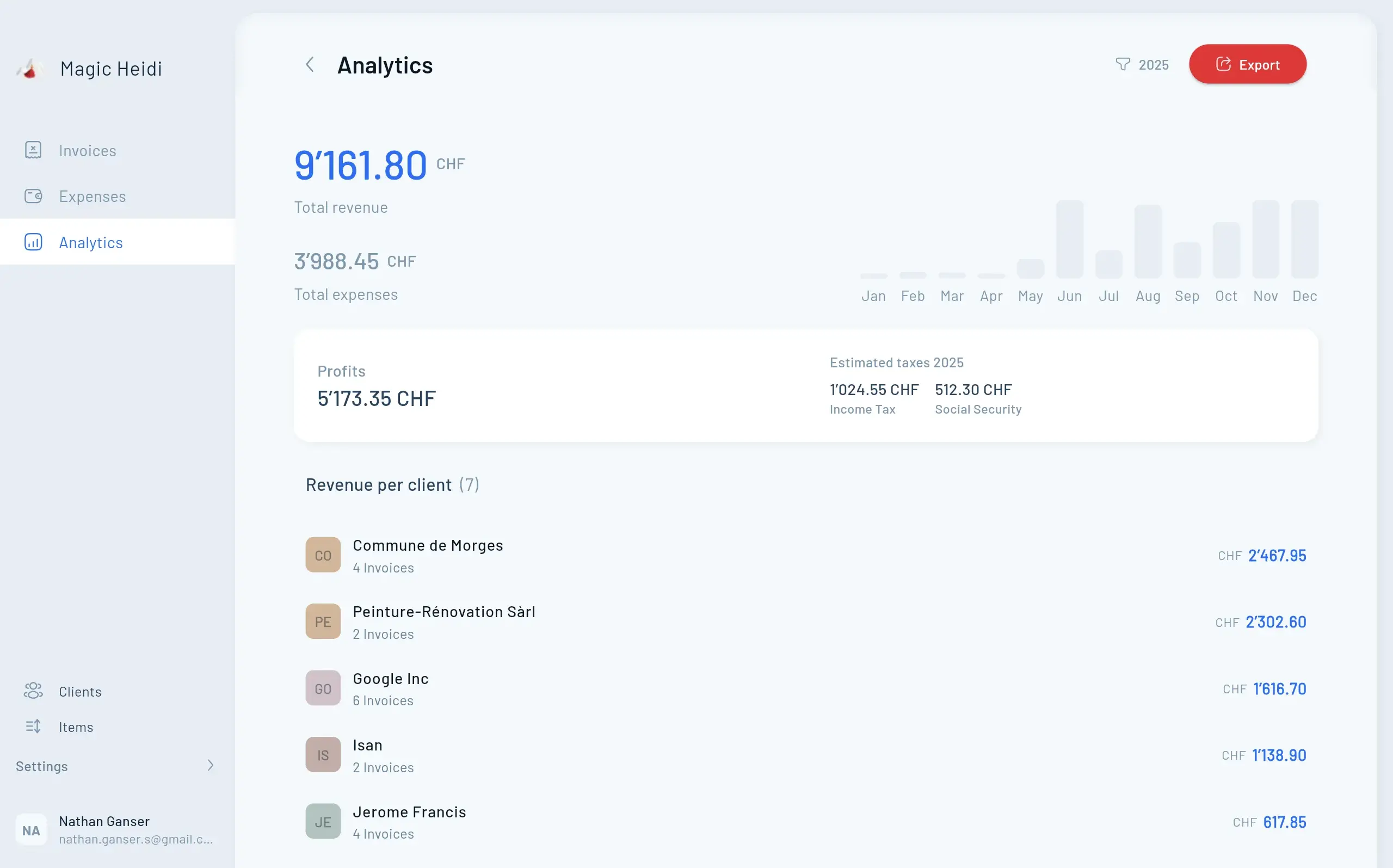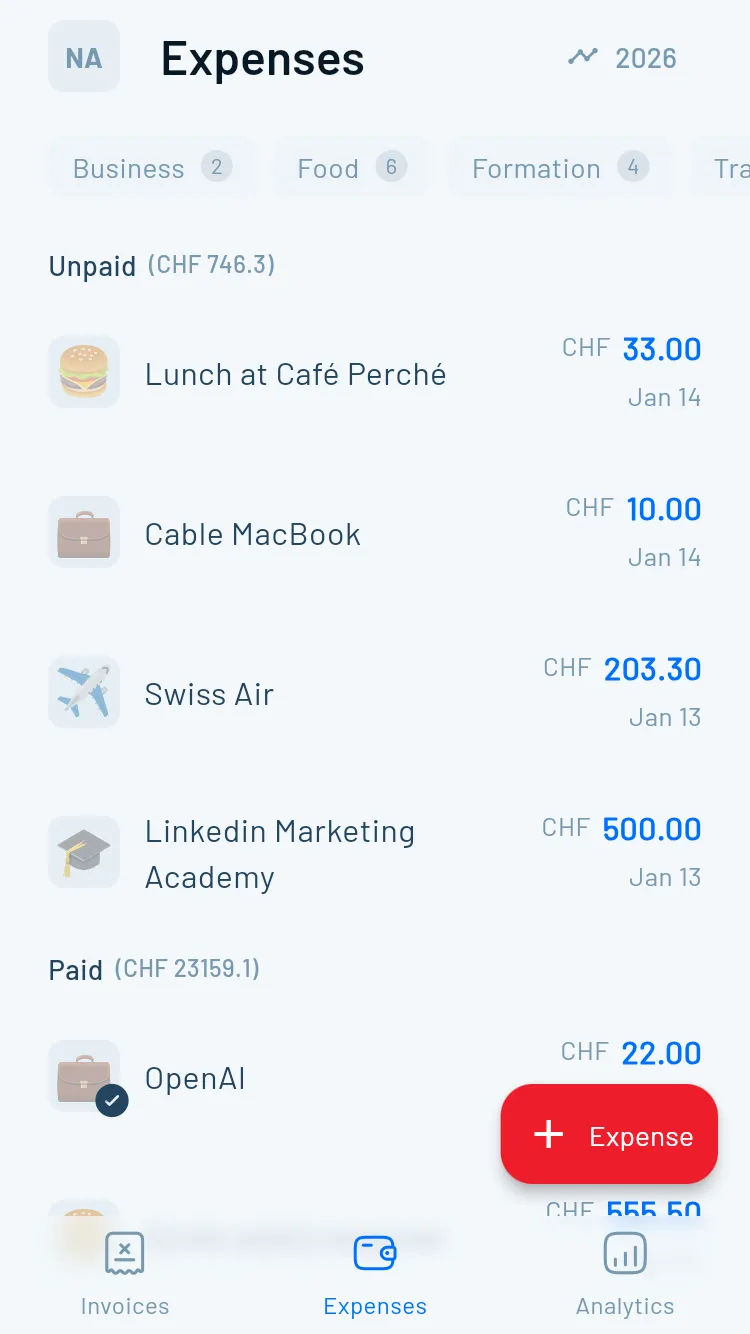When Does the 13th Salary Arrive in Switzerland?
The 13th salary typically arrives in December, just in time for holiday expenses. This extra payment isn't legally required—it's a contractual benefit that roughly two-thirds of Swiss employees enjoy.

Understanding Your Year-End Pay.
Know Your Rights.
Whether you're an employee checking your entitlement or a freelancer wondering how to create a similar financial buffer, understanding the 13th salary system is essential for Swiss workers.
December Payment
Most common timing~66% of Employees
Receive this benefitContractual
Not legally mandatedWhat Is the 13th Salary?
The 13th salary (13. Monatslohn or treizième salaire) equals one additional month's pay on top of your regular annual salary. Despite what many believe, it's not a bonus—it's part of your total compensation package, just distributed differently.
The concept evolved from 19th-century Christmas bonuses (Weihnachtsgeld) that Swiss employers gave workers. By the late 1960s, these informal gifts had transformed into the structured 13th salary system we know today.
How it works in practice:
| Salary Structure | Monthly Payment | Total Annual Pay |
|---|---|---|
| Without 13th salary | CHF 8,000 | CHF 96,000 |
| With 13th salary | CHF 7,385 | CHF 96,000 (same total) |
The key difference? With a 13th salary, you receive smaller monthly payments but get a lump sum at year-end. The annual total remains identical.
Is the 13th Salary Mandatory?
Three Ways You Might Be Entitled
No. Switzerland's Federal Code of Obligations requires employers to pay agreed wages—but nothing mandates a 13th salary specifically. However, once it appears in your contract, it becomes legally enforceable.
Employment Contract
If your contract explicitly states you'll receive a 13th salary, you're entitled to it. Period.
- Written in your contract
- Legally enforceable
- Cannot be removed unilaterally
- Applies from contract start date
Collective Labor Agreement (CLA/GAV)
Approximately one-third of Swiss employees are covered by a CLA. These industry-wide agreements often mandate the 13th salary.
- Industry-wide coverage
- Hospitality L-GAV requires 100%
- Starts from first day of work
- Check your industry's CLA
Implicit Contract Change
If your employer has paid a 13th salary consistently over several years without it being in your contract, Swiss law may recognize this.
- Stillschweigende Vertragsänderung
- Multi-year consistent payments
- Legal claim possible
- Consult a labor lawyer
How to Calculate Your 13th Salary
The standard calculation is straightforward. Annual gross salary ÷ 12 = 13th salary.
For Salaried Employees
| Scenario | Annual Salary | 13th Salary |
|---|---|---|
| Full year worked | CHF 96,000 | CHF 8,000 |
| 9 months worked | CHF 72,000 (earned) | CHF 6,000 (pro-rata) |
| Started in September | CHF 32,000 (earned) | CHF 2,667 (4/12) |
For Hourly Workers
If you're paid hourly and receive your 13th salary with each paycheck, the supplement equals 8.33% of your regular wages. This should appear as a separate line item on your pay slip.
Pro-Rata Calculation
Leaving mid-year? You're entitled to a proportional 13th salary:
(Months worked ÷ 12) × monthly 13th salary amount
This applies regardless of who initiated the termination or the reason for leaving.
When and How Is It Paid?
Most Swiss companies pay in December, though some split between June and December. Your employment contract should specify which method your employer uses.
- 📅December Lump Sum
Most common approach
- 💸Split Payments
Half in June, half in December
- 📋Contract Specified
Check your employment terms
- ✅Always Pro-Rata
When leaving mid-year
- Invoice #3
Magic Heidi
CHF 500
Jan 29
- Invoice #2
Webbiger LTD
CHF 2000
Jan 24
- Invoice #1
John Doe
CHF 600
Jan 20
Special Situations to Know About
Understanding how the 13th salary works in various circumstances protects your rights.
Leaving Your Job
You're entitled to your pro-rata 13th salary regardless of circumstances—resignation, termination, or leaving without notice.
Probation Period
Employers can specify that entitlement begins after completing probation. Always check your contract before assuming coverage.
Illness & Maternity Leave
Your entitlement continues during illness, pregnancy, maternity leave, and military service. Daily allowance insurance typically covers these periods.
Unpaid Leave
Extended unpaid leave can reduce your 13th salary proportionally, since it's linked to your actual working time.
Tax and Social Security Deductions
The 13th salary is fully taxable and subject to all standard deductions:
- Income tax – Added to your annual taxable income
- AHV/AVS – Social security contributions (5.3% employee share)
- ALV – Unemployment insurance (1.1% up to CHF 148,200)
- BVG/LPP – Pension fund contributions (varies by plan)
- NBU – Non-occupational accident insurance (if applicable)
Don't expect to keep the full amount. On a CHF 8,000 13th salary, deductions typically reduce your net payment to around CHF 6,000-6,500, depending on your tax bracket and canton.
The 14th Salary: Does It Exist?
Yes, though it's rare. Some Swiss employers offer a 14th salary to attract top talent in competitive industries. This functions as a genuine bonus rather than deferred salary and is typically performance-based or discretionary.
What About Freelancers?
Build Your Own 13th Salary
Self-employed professionals don't receive a 13th salary. As one of the 16.6% of Swiss workers who are self-employed, you're responsible for creating your own financial buffer.
Add 8.33% to your rates
8.33% of each payment
25% every three months
Use accounting software
Track Income & Plan Ahead
Using accounting software helps you track income, plan for taxes, and ensure you're setting aside enough for year-end—whether for your self-funded 13th salary or tax obligations.

Frequently Asked Questions
Is the 13th salary taxed differently?
No. It's taxed as regular income with standard social security deductions. There's no special tax treatment.
Do part-time employees receive a 13th salary?
If your contract includes it, yes. The amount is proportional to your working hours (e.g., 50% employment = 50% of the 13th salary amount).
What if my employer has always paid a 13th salary but it's not in my contract?
You may have a claim through implicit contract change (stillschweigende Vertragsänderung). If payments have been consistent over multiple years, consult a labor lawyer.
Can I negotiate a 13th salary if my offer doesn't include one?
Absolutely. It's a standard negotiation point. Alternatively, negotiate a higher base salary that accounts for the missing 13th salary (approximately 8.33% more).
How does the 13th salary affect my pension contributions?
Your 13th salary is included when calculating BVG/LPP pension contributions and your insured salary.
What happens if I work in hospitality?
The L-GAV makes the 13th salary mandatory at 100% from day one. It must be paid with your December salary or upon termination.
Is the 13th salary common in other countries?
Many European and Latin American countries have similar systems. In some countries (like Brazil and Argentina), it's legally mandated. Switzerland's approach—customary but not required—is relatively unique.
Do apprentices receive a 13th salary?
It depends on the employer and any applicable CLA. Many companies extend the 13th salary to apprentices, but it's not guaranteed.
Take Control of Your Year-End Finances
Whether you're verifying your entitlement as an employee or building a self-funded reserve as a freelancer, staying organized is essential. Know your rights. Plan ahead. Enjoy December.